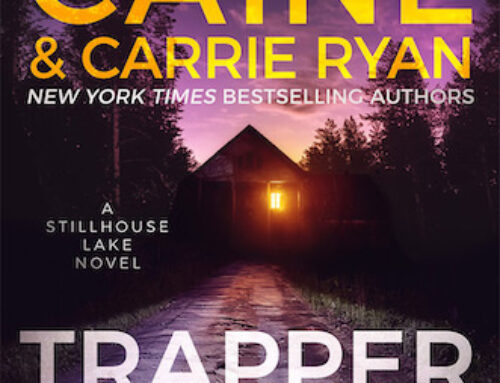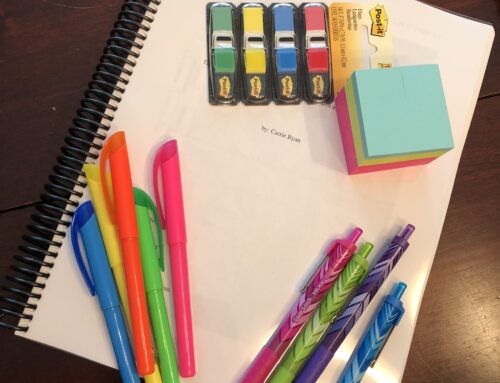I’m not sure if I’ve mentioned this before and if I have, bear with me as I tell a brief tidbit again. I went to a religious high school and one of our graduation talks was from a bishop. He said something I’ll never forget: he asked us to constantly question our faith. If we questioned our faith and lost it, then it wasn’t strong to begin with and if we questioned and retained our faith, then it was that much stronger.
 I think this is something that’s applicable to all areas of our life which is why I find it so puzzling how many people want to restrict information, especially through banned books. Perhaps it’s because I grew up in a fairly open household where our curiosity was supported but really I think it comes down to this: if the only way you can keep people believing what you want them to is to deny them access to other points of view, then not only do you not trust those people but you certainly don’t trust the strength of your own message.
I think this is something that’s applicable to all areas of our life which is why I find it so puzzling how many people want to restrict information, especially through banned books. Perhaps it’s because I grew up in a fairly open household where our curiosity was supported but really I think it comes down to this: if the only way you can keep people believing what you want them to is to deny them access to other points of view, then not only do you not trust those people but you certainly don’t trust the strength of your own message.
This is why I find the notion of banning books utterly absurd. Sure I understand that books can have really mature content, that they can say things that you might personally disagree with or even find morally abhorrent. But denying people the right to read those books doesn’t fix anything, it just keeps people ignorant and unable to form their own opinions. If you’re afraid of the message in books, afraid of what someone might think or learn then read them together and discuss about the issues raised, don’t ban them.
In my book, The Forest of Hands and Teeth, Mary is raised in a very strict society where all information is restricted — there are no books (except for one). Because of this, the ruling class is able to control absolutely every belief held by those in the village. It’s done out of fear: fear that if left to their own devices, if allowed to learn and come up with their own points of views, they might rebel. They might wonder if there’s life outside the fences. They might question authority and might even begin to determine for themselves how they want to live their lives rather than having it dictated to them.
It’s no surprise that so many dystopian novels have societies with restricted information and a lack of books. Control the information and you control the people. You stop them from thinking for themselves.
Because, really, that’s all banning books does: it freezes society’s ability to question authority. It keeps us docile. In control. Ignorant.
And to me, that’s the opposite of how we should live life. We should question everything and we should encourage teens especially to question it all. We should have faith in them — in all of us — that armed with as much information as possible, we’re going to make good decisions.
Because if we don’t believe that, we’re all in way more trouble than I thought.
 This is why this week and every other week of the year, we should speak out against banning books. We should support all books and we should support the readers of those books and be there to listen and talk about challenging content rather than covering it up. These are our future mothers, senators, presidents, coaches, teachers, authors, bankers, uncles: we should hope that they grow up with open minds and the ability to think for themselves so they can teach that next generation to do the same.
This is why this week and every other week of the year, we should speak out against banning books. We should support all books and we should support the readers of those books and be there to listen and talk about challenging content rather than covering it up. These are our future mothers, senators, presidents, coaches, teachers, authors, bankers, uncles: we should hope that they grow up with open minds and the ability to think for themselves so they can teach that next generation to do the same.






Yeah, what she said…lol. Very well stated, Carrie. Couldn't have said it better myself. Good for you! But honestly, because of books like yours, its has driven the interest in reading. Why ban them when an eniter generation is excited about reading again!
Absolutely, Carrie. Very well said. Book banning, or the desire for it, stems solely from ignorance and would beget nothing but further ignorance. If you don't want to read it, shut the covers. A book will not force anyone to read it.
I so tweeted this.:D
Just, amen. One big fat AMEN.
*love* this.
Absoultely!
The best words I've heard on this are: "Try parenting, not censorship." It's fine if a parent wants to limit his or her child's access to certain things–but NOT fine if that parent wants to limit that for EVERYONE.
Oooooooh yes! So well put.
Very well put, Carrie. I utterly and completely agree.
In fact, this very reason is why I had so much trouble growing up in my mother's home — and while I respect everyone's choice of faith and religion (or absence thereof) — it does make me froth with rage to know that one of their strongest doctrins is to keep themselves isolated and disallow so many important things (i.e., specific books). How anyone can feel a person is able to learn and grow in such a confined environment is completely beyond my scope of reasoning.
Funny thing is, looking at the list, some of them are my favorites from my childhood.
I remember reading Fahrenheit 451 in the 6th grade and discussing the implications of book burning and forced ignorance in my classroom… the fact that this particular book was banned just proves the book's point.
Too funny :). I love your points here! AMEN!
Well said, Carrie. I plan to blog about this myself. I cannot imagine not having access to books. I'd go nuts…
Great post, Carrie.
I just looked at a list of some of the contested books in the US and there are so many that were and still are childhood favorites. Keep writing! Even after the FHT series is done PLEASE keep writing! I am excited for my children to someday read your books and love them as much as I have loved FHT.
I'm so glad you said this. There is NOTHING to be gained by denying people books. I loved what you said at the beginning to constantly question. Actually, I loved the whole post!